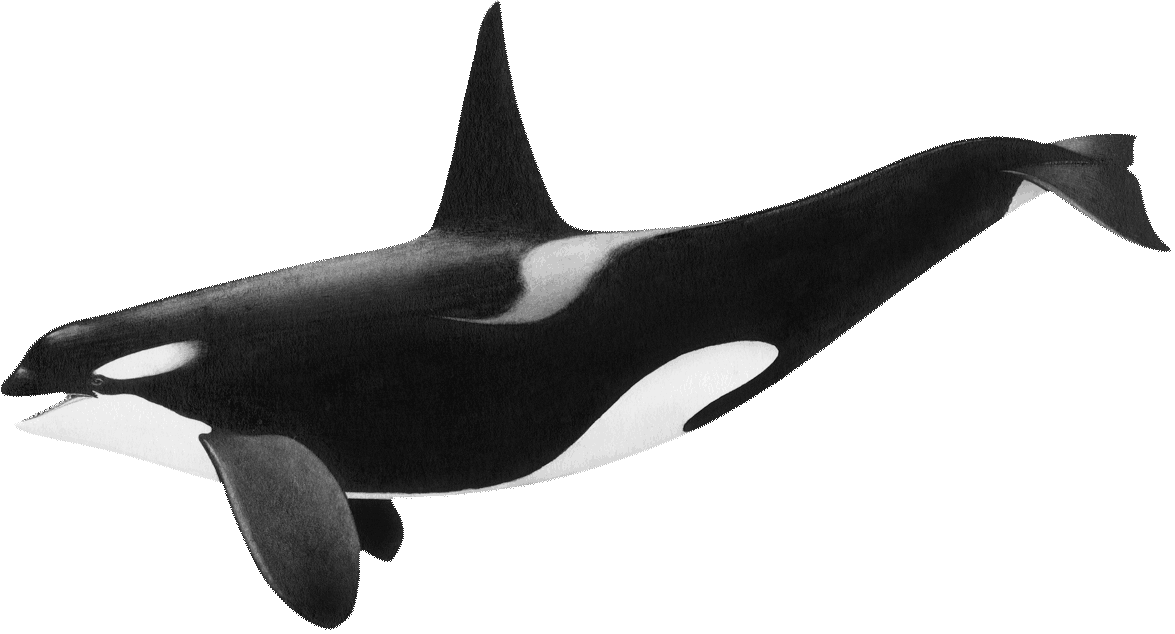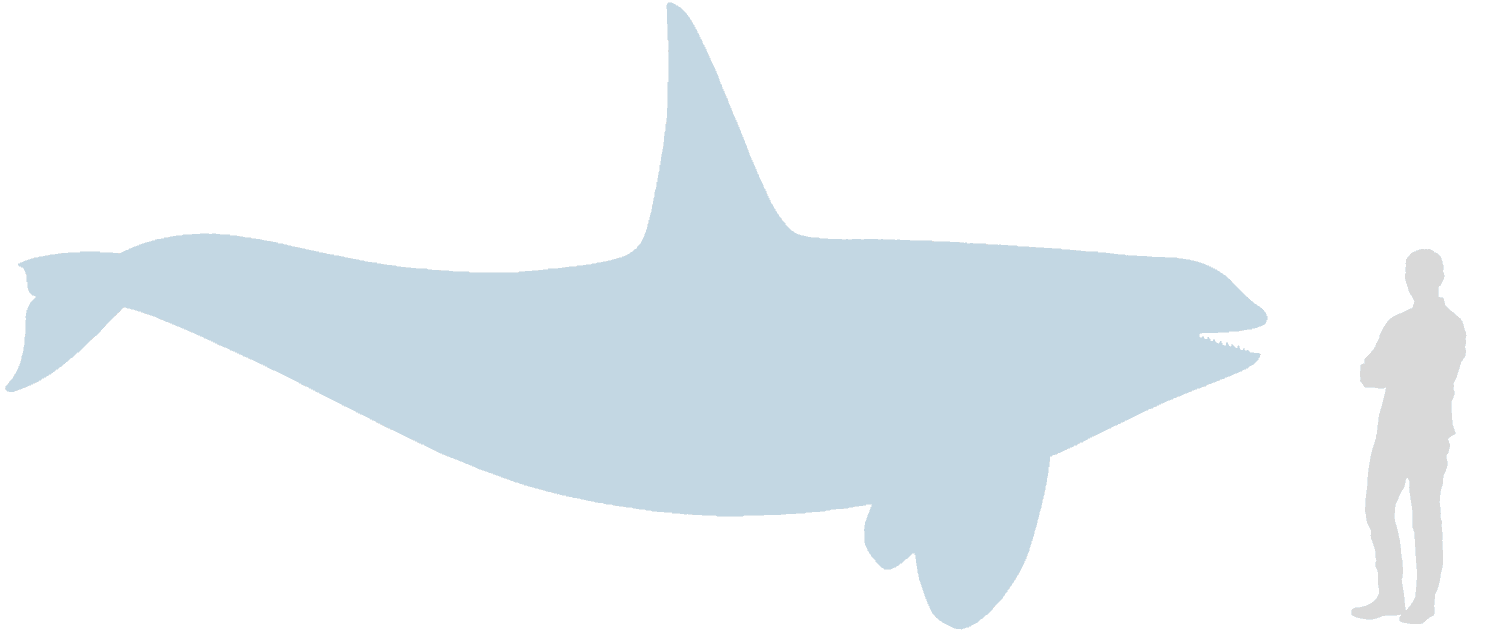
Killer Whale (Orca)
Orcinus orca
Scientific Classification
| Kingdom | Animalia |
|---|---|
| Phylum | Chordata |
| Class | Mammalia |
| Order | Cetartiodactyla |
| Suborder | Odontoceti |
| Family | Delphinidae |
| Genus | Orcinus |
| Species | orca |

Male killer whales are typically 18 ft long (5.5m) and weigh approximately 5 tons (4500 kg). Females are 17 ft long (5.2 m) and weigh 2.5 tons (2,200 kg).
Killer whales typically live for about 50 years, but some can reach 80 years of age.
There are different populations of killer whales around the world and these populations have different prey preferences – from fish to marine mammals – and use diverse and clever techniques to catch them.
They are found all over the world, living mostly in colder regions where prey is abundant, but also occur in temperate and tropical waters.
Threats to Killer Whales
Fishing & harvesting of aquatic resources, pollution, captivity, anthropogenic (human-created) noise
Current Population Trend Unknown
 |
Conservation Status The IUCN Red List tracks the conservation status of organisms around the world. Visit the Red List to learn more about the conservation status of killer whales. |
OCS Research Insights
Killer whales are only occasional visitors off Los Angeles, and we have never observed them in the company of other marine mammal species.
Killer whales recorded by our researchers off Los Angeles belong to the transient population, and use our study area to travel and forage (search for food).
Killer Whale Facts
• They are called “whales” but are actually the largest member of the dolphin family.
• 60 killer whales are currently being kept in captivity around the world.
• Each pod has its own distinctive dialect.
• Their social structures are complex and most of them are organized in matriarchal (female-led) societies.
SUPPORT CONSERVATION
Protect whales and dolphins now and for future generations
TAKE ACTION!
Here's how you can help
Learn Safe Observation
Learn how to safely observe whales, dolphins and other marine mammals - whether from a boat, surfboard or when kayaking or swimming.
Report Injuries or Harassment
Know who to contact if you encounter marine animals who are injured, in distress, or those being harassed by humans or boats.
Support Marine Research
OCS conducts one of the longest-running investigations on wild dolphins and whales existing worldwide. Learn more about research projects that help ensure the protection of these animals for generations to come.
Share Your Knowledge!
Ocean conservation starts with education. Share this page by copy/pasting its URL into your social media accounts to educate others about the magnificent marine mammals we share our planet with.
whale and dolphin species drawings © Massimo Demma / ICRAM / Muzzio
